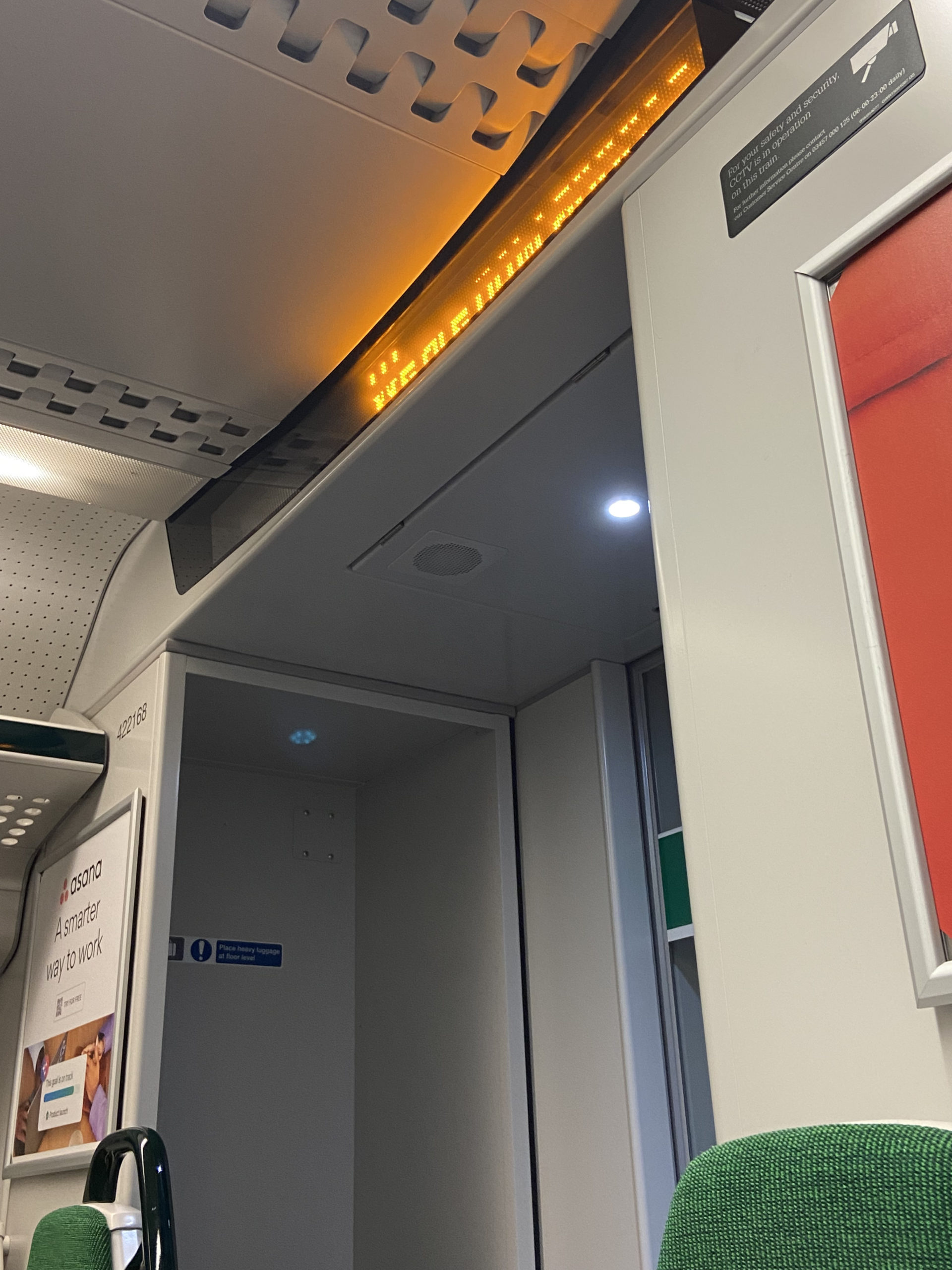Hello everyone! It’s Albina, I’m from Ukraine and I’m a first year studying LLB Law with Professional Placement at Streatham Campus. Today I’m going to share some budgeting tips for students at the University of Exeter. Money can be tight, especially when you’re just starting to learn how to manage your own expenses. But that doesn’t mean you can’t have fun while sticking to a budget! Whether you’re a prospective or current student, these tips will be useful for everyone.
Budgeting is one of the most valuable skills you can develop as a student, and it’ll serve you well beyond your university years. From planning meals and managing your social life to making travel plans without breaking the bank, there are plenty of ways to save money and still enjoy everything that university life has to offer. In this blog, I’ll walk you through practical tips to help you stretch your student budget, while still making the most of your time at Exeter. So let’s dive in!
Food:

Food is one of the most significant expenses students face. Whether you’re adjusting to buying groceries on your own for the first time or trying to navigate meal planning, it’s easy to overspend if you’re not careful. However, there are plenty of ways to save money while still eating well. Let’s take a look at some practical tips that will help you stay on track with your food budget.
It can be a shock when you first realise how much everything costs when you start buying your own food. That’s why it’s important to budget effectively. First, talk to your flatmates and consider getting groceries delivered together. This is especially handy if you want to buy groceries once a week without having to lug heavy bags up the hills. For example, a delivery from Sainsbury’s is usually £4.50, but if you split it between eight people, it’s only about 60p each for the delivery.
Moreover, cooking meals together with your flatmates is a great way to save money, time, and reduce food waste. Instead of everyone buying and cooking separately, you can pool your money and ingredients to prepare larger meals that everyone can share. For example, my flatmates and me love making lasagna, fajitas or curry. Not only does this reduce the cost of individual meals, but it also means you’ll use up ingredients more efficiently, avoiding waste. It’s also a fun social activity, and you can take turns cooking to save time throughout the week. Plus, it often ends up being cheaper to buy in bulk when cooking for a group.
Second, plan your meals in advance! Wondering how that saves money? Speaking from personal experience, if you just buy random food, you might find yourself needing to make extra trips to the supermarket to buy additional ingredients. These small trips can add up quickly! By planning, you’ll know exactly what you need and avoid waste from unused food.
Third, look out for discounts! Sign up for a Nectar or Tesco card, depending on where you shop. Over time, it will save you money, plus you can collect points to spend later. UniDays also offers plenty of student discounts on everything from food to clothes and makeup.
Sometimes we don’t have the time or energy to cook, and that’s okay! You can prep meals ahead if you know you have a busy day coming up, or keep some frozen food on hand to heat up in a microwave or oven. Also, check out the “Too Good To Go” app, where you can buy discounted food from restaurants or takeaways at the end of the day – students love it! Another tip: try the diners on campus, which often have student-friendly prices. For example, ISCA Eats offers a burger for just £6.00 – a great deal!
Socialising:

University life isn’t just about academics; socialising is an important part of the experience. However, there’s a common misconception that you need to spend a lot of money to enjoy social activities. Fortunately, that’s not the case! There are many ways to socialise without breaking the bank. Let’s explore some tips for making the most of your social life on a student budget.
One of the best ways to socialise is by joining societies. The University of Exeter has over 300 societies, and include languages, religion, politics, hobbies and volunteering/good causes. You’re sure to find one that suits your interests, whether it’s Lego or hide and seek, K-Pop or Comedy. Membership fees are usually low, and some societies are free! They also give away lots of freebies – I got a cup from the Law Society! You don’t have to spend much to join in on their events and meet new people.
If you like going out for coffee with friends, many spots in Exeter offer student discounts. Just show your student ID or a UniDays code. Some societies even have partnerships with local cafes, bars, and restaurants, so if you’re a member, you might get a discount. For example, members of the Law Society get 10% off at Camper Coffee in the Amory Building.
And if you enjoy going out, it doesn’t have to be expensive either! Many bars and clubs in Exeter offer student nights, where drinks and entry fees are heavily discounted. These are often on weekdays, so keep an eye out for promotions and deals targeted at students. You can also check out events hosted by student societies, which sometimes partner with local venues to offer cheaper entry and drink deals. For example, when the Law Society do socials they give everyone a free drink at a venue, whilst the price of the ticket tends to be only £1.50. Planning your nights out on these student-focused evenings can help you save a lot compared to weekends when prices tend to be higher. There are also a lot of bars and pubs which offer cheap drinks, such as the Ram Bar located on campus.
Another tip for saving money on nights out is to pre-drink with friends before heading to a club or bar. Buying drinks from a supermarket or sharing drinks with flatmates is much cheaper than purchasing them at a venue. Just make sure to drink responsibly and have fun in moderation!
Travel:

Traveling to and from university can add up quickly, especially when you’re on a student budget. Whether it’s commuting to class, going home for the holidays, or exploring a new city on the weekends, getting around is a big part of student life that requires planning. But don’t worry – there are ways to manage travel costs without missing out on adventures or trips home!
First, get a railcard to save 1/3 on train journeys. It’s a great investment and can save you a lot in the long run. You can even get 15% off your railcard if you buy it through Trainline with a UniDays code! (You’ve probably guessed by now how much I love UniDays.) Another tip: buy train tickets in advance as they’re usually cheaper.
If you’re on a night out and need to get home, you can split the cost of a taxi with friends or flatmates, or catch the night bus, which runs to campus on Wednesdays, Fridays, and Saturdays. You can find the timetable here: Night Bus Timetable.
For longer trips across the UK, you can also consider using coach services like National Express or Megabus. These are often much cheaper than trains, especially if you book in advance. While the travel time might be longer, the savings can be significant, and many coaches offer amenities like Wi-Fi and charging points. If you’re flexible with your travel schedule, you can often find great deals, especially during off-peak times.
Tips for international students:

For international students, budgeting comes with a few extra challenges. From navigating exchange rates to understanding how things like banking, shopping, and travel work in a new country, the learning curve can be steep. But don’t worry—with a bit of preparation and the right approach, you can manage your finances and make your experience in the UK both enjoyable and affordable. Here are some tips to help.
One of the first things you should do as an international student is open a UK bank account. This will make managing your money easier, as you won’t have to worry about exchange rate fees or international transaction charges. Most banks offer student accounts with perks like fee-free overdrafts. Be sure to research different banks to find the one that suits your needs best. For example, currently HSBC offers a £1000 fee-free overdraft, and Santander offers a 4-year free railcard.
Keep an eye on currency exchange rates, especially if you’ll be receiving money from home. Exchange rates can fluctuate, and transferring money when the rates are favourable can save you quite a bit over time. Services like Wise or Revolut offer competitive exchange rates and lower fees than traditional banks.
Remember to account for extra costs like visa fees and health insurance. The UK’s National Health Service (NHS) is available to international students through the Immigration Health Surcharge (IHS). You can find information on how to sign up for the GP in Exeter on here: https://sid.exeter.ac.uk/faqs/GuestFaq.aspx?CCTC=EXSS&code=614
By staying organised and informed, you’ll find that managing your finances as an international student in the UK is definitely achievable. Balancing your budget is key to ensuring that you enjoy both your studies and your time exploring a new country!
Budgeting as a student doesn’t mean sacrificing fun or comfort. With a bit of planning, you can save money on food, socialising, and travel while still enjoying your university experience. Remember, small changes can add up to big savings over time, so keep these tips in mind and make the most of your time at Exeter!

